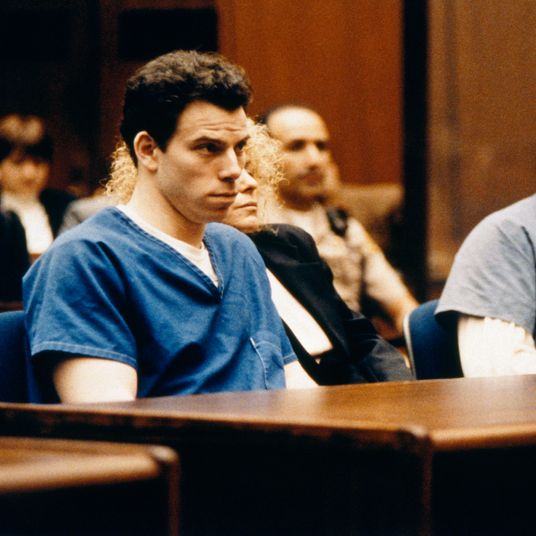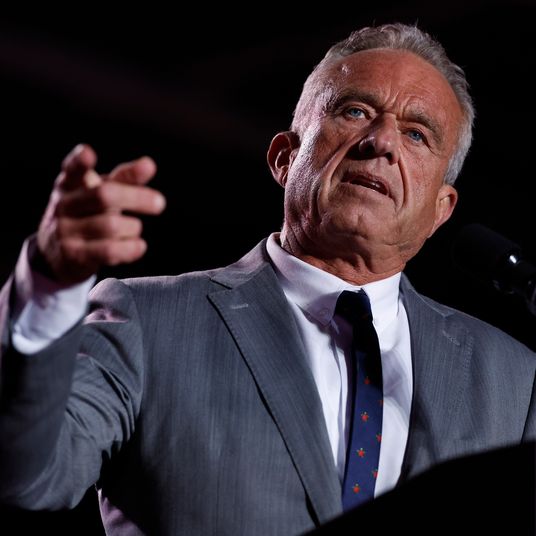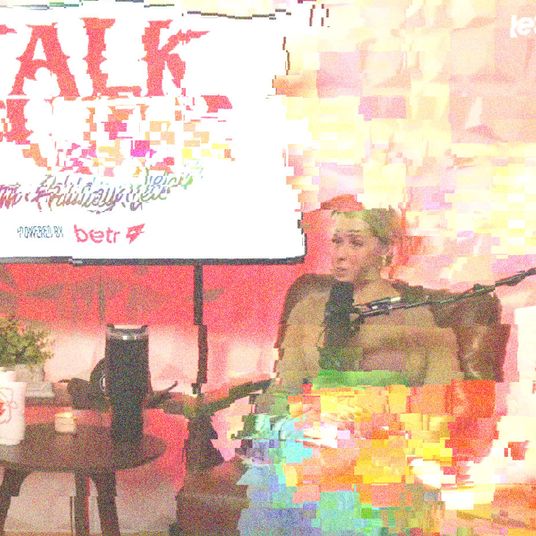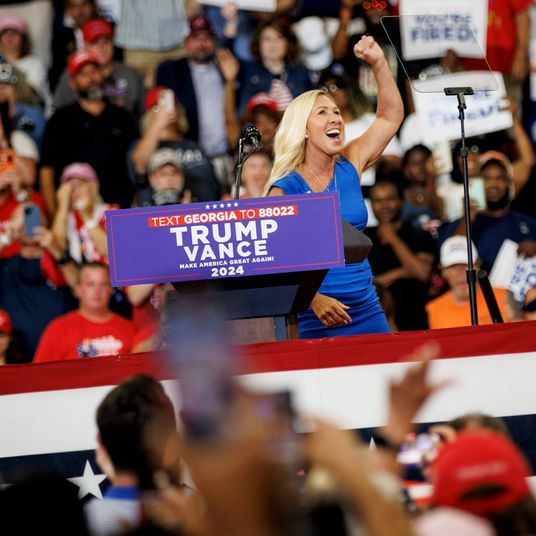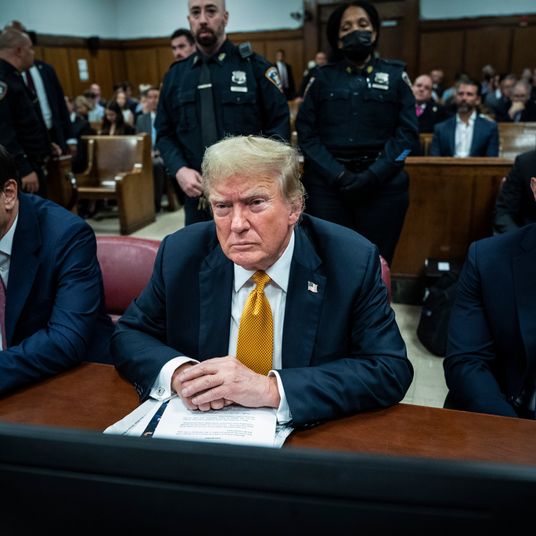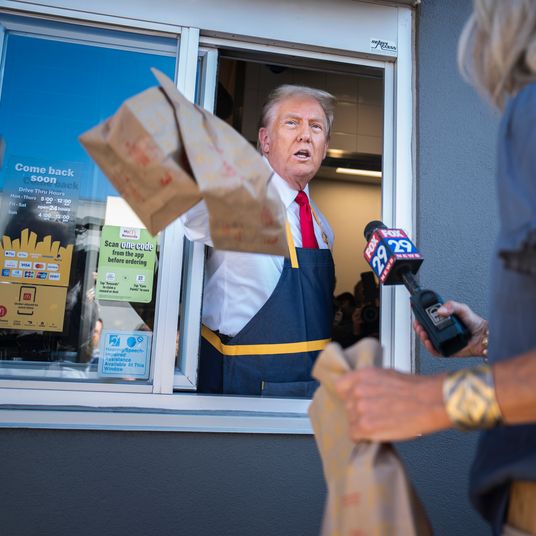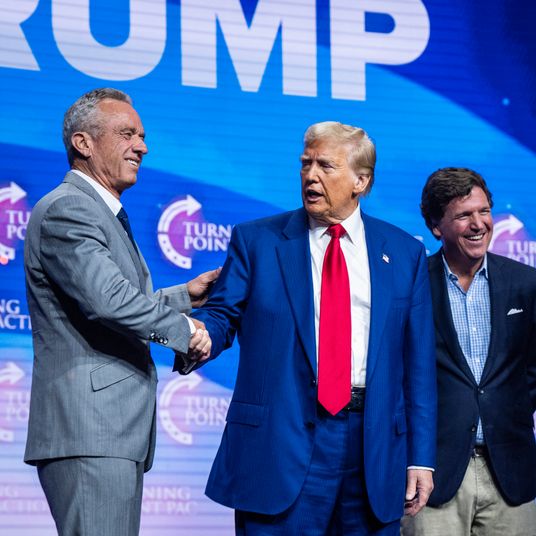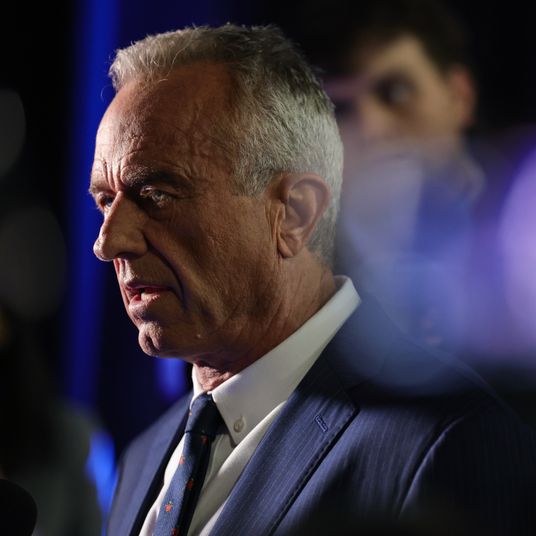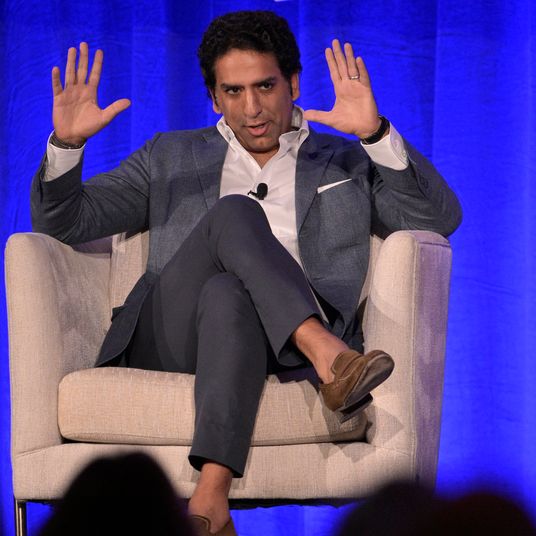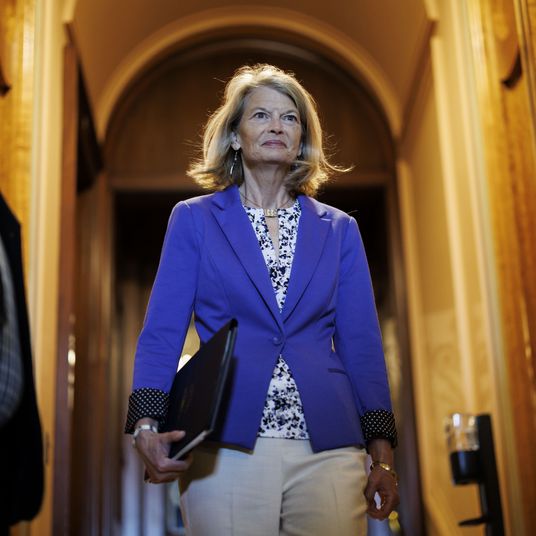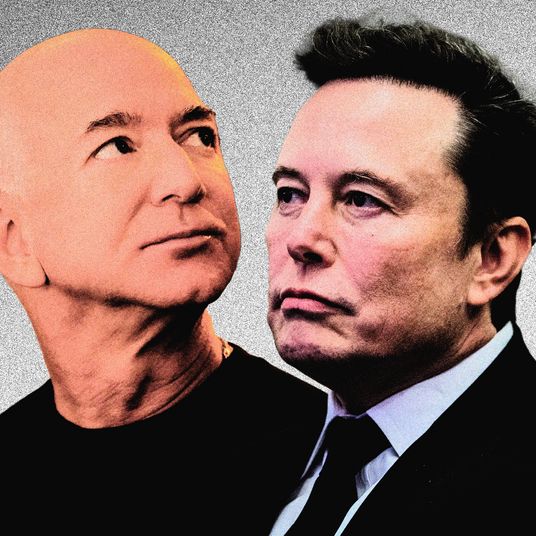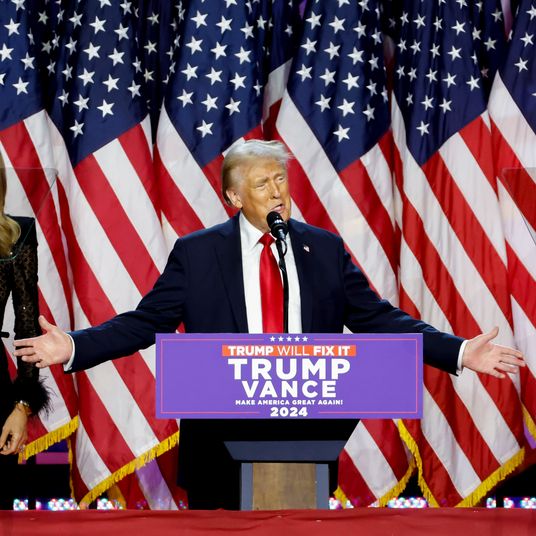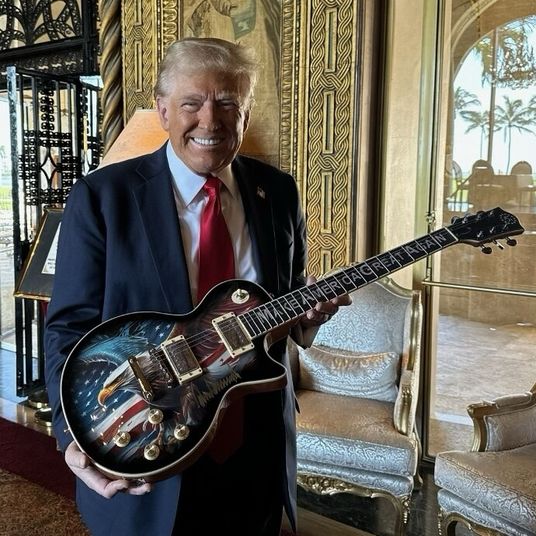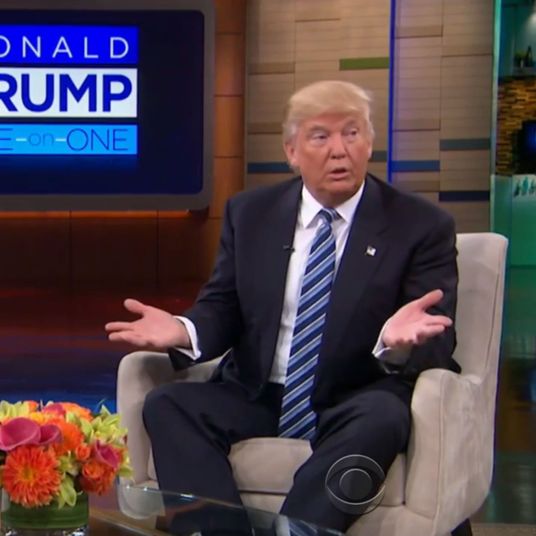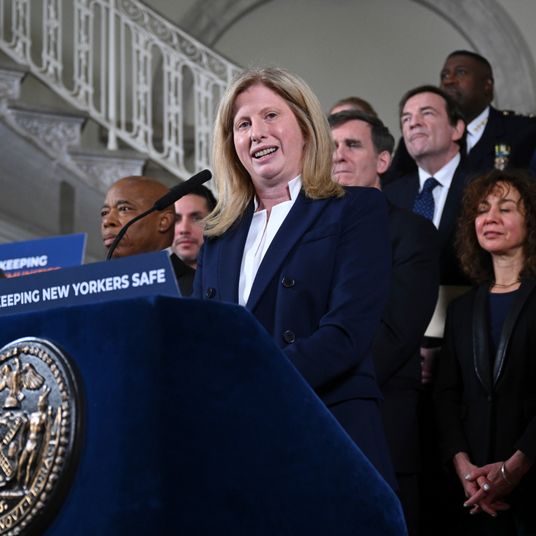
Earlier this month, the CEO of Trump Media & Technology Group — former California representative Devin Nunes, went on Maria Bartiromo’s Fox Business show and delivered a kind of mission statement for the former president’s newly public business. Truth Social, Nunes said, is “a beachhead against Big Tech,” he said. They’re “the only game in town” for conservatives, he continued (at least after Meta, Google, TikTok, and X).
Nobody really buys this line. The company is something of a mirror image of a major tech company. It loses money, has only one user who matters, and has no network effect to speak of except when users on competing platforms — or the traditional media — pick up on Trump’s posts. Billionaire Barry Diller called the company a “scam.” Yet Trump Media was recently valued at nearly $8 billion after it merged with a publicly traded SPAC. When the market opened on April 15, the first day of his criminal hush-money trial in New York, Trump Media plummeted 10 percent, one of the worst days of its very short life as a publicly traded company — before a word was even uttered in the court room.
This ambiguity around Trump Media’s raison d’être has made its stock price difficult to understand, especially since the market was valuing it, at its peak, as roughly equivalent in value to Norwegian Cruise Lines. Was it a meme stock, akin to the GameStop weirdness of 2021? Sort of. But soon an alternative explanation would emerge. Maybe investors were using Trump’s company as a kind of election market. “Investors use it as a way to bet on Trump’s push for re-election,” wrote Bailey Lipshulz at Bloomberg. This initially appeared to make some sense, but the theory has not really been borne out by subsequent events. After surging at the gate, Trump Media began to tumble, and by Friday, it had lost more than half of its initial value. Trump’s odds of winning the election, meanwhile, have not moved nearly as much. Does that mean Trump’s edge in winning the presidential election has also fallen by half? Or is Wall Street getting this all wrong?
It’s true that there has never been a public company so closely associated with an active U.S. presidential candidate. (Ross Perot sold his first major business before his 1992 campaign and wouldn’t take his second one public until years later.) But it doesn’t make sense to view DJT’s share price as a measure of Trump’s actual chances in November. Investors buy stocks for all kinds of short-term, greedy reasons that have more to do with the balance of their brokerage accounts today than an election several months away. And that is clearly the case with Trump Media. The number of shares available to trade right now, called the float, is fairly small, about 136.7 million — but many of those shares aren’t actually on offer, since newly public companies tend to restrict insiders and investors from cashing out too quickly. Despite that, DJT is a very popular company to buy and sell, especially for day traders. “We’re seeing so much trading in it,” says Ihor Dusaniwsky, a managing director at S3 Research, which analyzes stock-trading data. “This is guys trading momentum during the day. They’re trading stock-price swings and riding ups and downs.” On Friday, there were about 7 million shares betting that the price of the stock would fall even farther. This is a lot of pressure to keep the stock price down — and it’s probably going to keep falling.
In other words — the stock is trading like a stock, not like a grand bet on the 2024 election. Remember, there are real reasons to think that this company is worth only a fraction of its current market value, even if Trump wins back the presidency. Trump Media is mired in civil litigation and insider-trading scandals. And there is a very real risk that Trump will dump some portion of his shares as soon as he is able to in order to cover his rising legal costs, which would further add to the supply of what’s available. Of course, there are going to be traders out there who want to hold DJT just because of Trump — a meme stock for the most memed candidate makes sense. But that’s far from the whole story.







